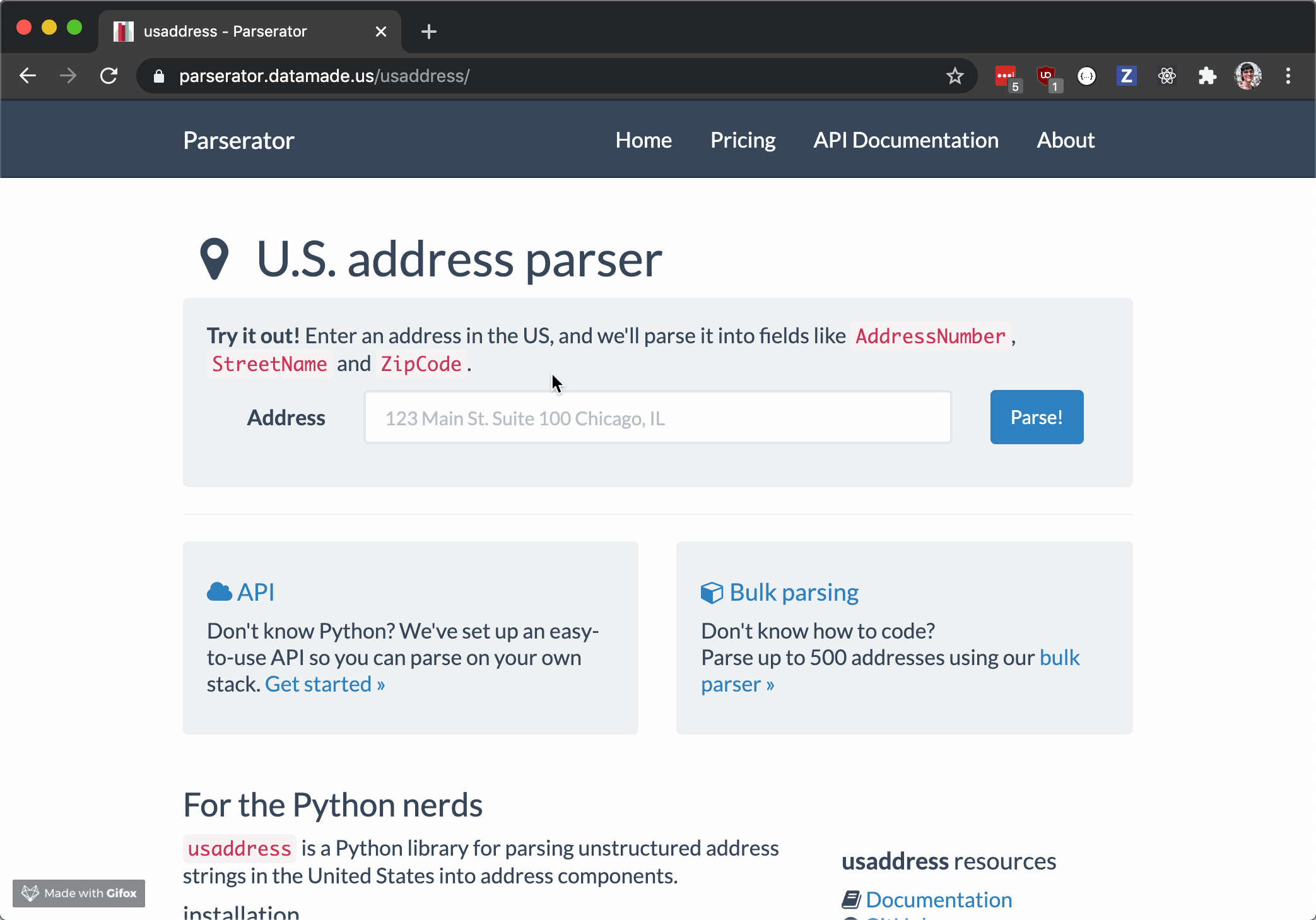Welcome to the DataMade code challenge! 👋
Your task is to recreate the address parsing form in DataMade's
Parserator web service. Parserator can take
input strings that represent addresses (like 123 main st chicago il)
and split them up into their component parts:
In this repo, we've provided the basic scaffolding of the templates, views, and routes that comprise the app. You'll need to flesh out certain code blocks in the frontend and backend code in order to send API requests, process them on the server, and display the results to the user.
You can use vanilla JavaScript or jQuery to complete the JavaScript portions of this assessment.
To get started, fork this repo and follow the instructions below.
Development requires a local installation of Docker and Docker Compose. These are the only two system-level dependencies you should need.
Once you have Docker and Docker Compose installed, build the application containers:
docker-compose build
Next, run the app:
docker-compose up
The app will log to the console, and you should be able to visit it at http://localhost:8000.
Once you have the app up and running on your computer, you'll need to flesh out certain code blocks to complete the parsing interface.
Note: You can use the following address strings for testing during implementation:
- ✅ Valid:
123 main st chicago il - ❌ Invalid:
123 main st chicago il 123 main st
In parserator_web/views.py, use usaddress
to implement the AddressParse.parse() method. It should return two pieces of
data:
address_components: The parsed addressaddress_type: The type of address provided
In parserator_web/views.py, complete the AddressParse.get() method to return
three pieces of data:
input_string: The string that the user sentaddress_components: A dictionary of parsed components that comprise the address, in the format{address_part: tag}(returned byAddressParse.parse())address_type: A string representing type of the parsed address (returned byAddressParse.parse())
Don't forget to handle strings that cannot be parsed and return errors!
In parserator_web/templates/parserator_web/index.html, fill out the <script>
tag in the extra_js block, adding JavaScript code that will use the form
to send form data to the API endpoint fleshed out in Step 2.
In parserator_web/templates/parserator_web/index.html, extend the <script>
tag in the extra_js block to display results from the API endpoint in the
hidden element <div id="address-results">.
Make sure that if the API raises an error, it displays this error to the user.
The tests/ directory contains two stubbed tests. Complete each test by making
a request to the API endpoint and verifying that it passes or fails, and
returns the expected output.
You can run the tests using Docker:
docker-compose -f docker-compose.yml -f tests/docker-compose.yml run --rm appNot familiar with pytest? Consult our testing guidelines
for quick start instructions, plus tips and tricks for testing Django
applications.
To submit your work, create a feature branch for your code, commit your changes,
push your commits up to your fork, and open up a pull request against master.
Finally, drop a link to your pull request in your application.
